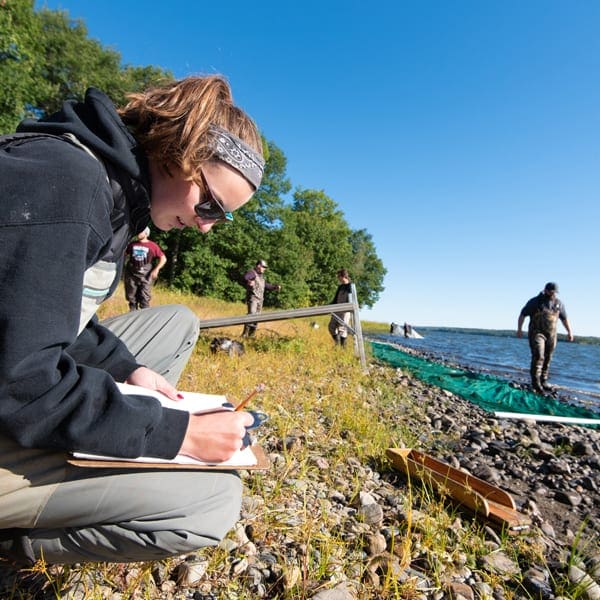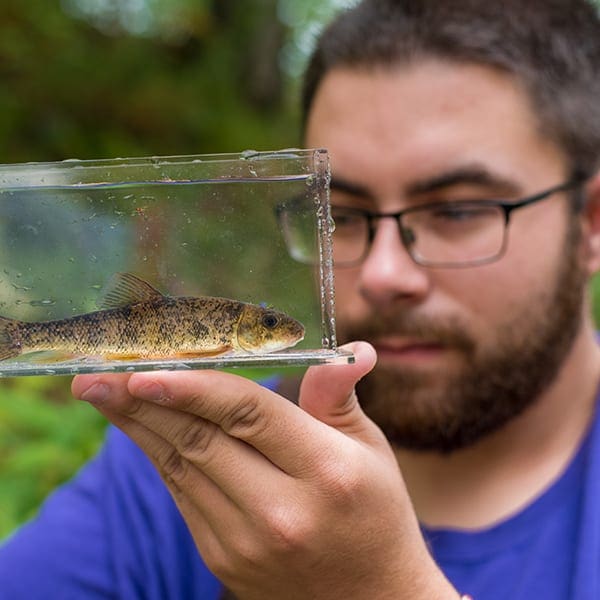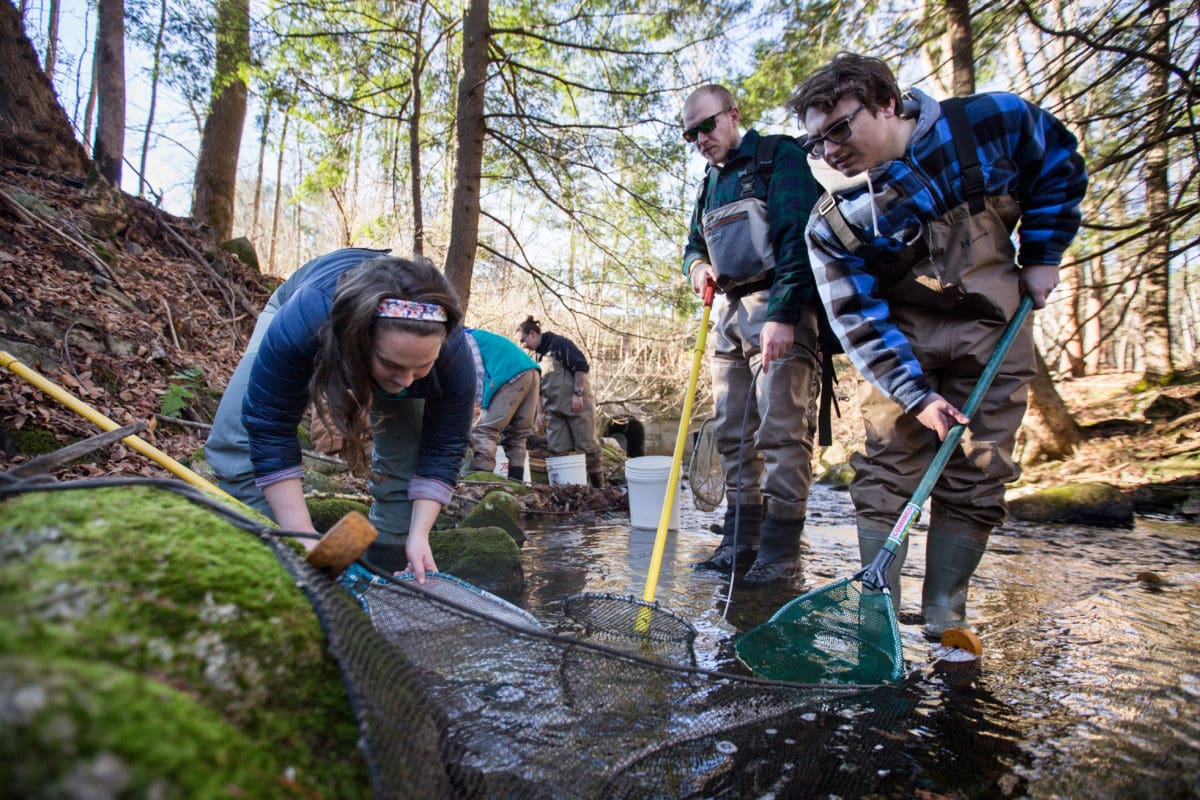
Wildlife and Fisheries Biology
Bachelor of Science
Earn a Wildlife Biology Degree
With a Focus on Conservation
There’s a new way to earn a wildlife biology degree from America’s Environmental College. Offered as a Hybrid Learning program, the B.S. in Wildlife and Fisheries Biology is flexible, affordable, and built for your busy life. Students learn through a combination of online and in-person courses. Engaging fieldwork will immerse you in wildlife and fisheries science, and you’ll graduate ready for the mission of exploring and protecting our natural world.
The Wildlife and Fisheries Biology degree at Unity Environmental University features the rigorous resource management curriculum you’d expect from a top fish and wildlife management degree program, along with courses in conservation biology, ecology, dendrology, and more. Our nationally recognized professors, exciting research opportunities, and hands-on learning place us among the most exciting wildlife biology colleges in the country. With a wildlife science degree from Unity, you’ll be prepared to roll up your sleeves and solve the world’s most pressing environmental problems.
Average yearly salary for wildlife/fisheries biologist
Number of start dates a year in Hybrid Learning
Percent of recent graduating class that were employed or attending graduate school
Average yearly salary for wildlife/fisheries biologist
Number of start dates a year in Hybrid Learning
Percent of recent graduating class that were employed or attending graduate school
Wildlife and Fisheries Biology Hybrid Learning Highlights

Receive personalized training from committed, expert faculty.

Gain frequent field experience in forests, lakes, and the ocean.

Work with dedicated instructors online or in-person.

Numerous opportunities: creating a senior thesis project; working with faculty on undergraduate research; presenting at conferences.

Connect with state and local biologists to work on regional environmental issues.
Download the Wildlife and Fisheries Biology Degree Plan
What Students Study
Many courses in the Wildlife and Fisheries Biology degree program integrate other disciplines for cross-study purposes, helping you to consider solutions to human-natural systems in your coursework. As a student in our program, you will gain the fine-tuned skills and knowledge to become an experienced environmental problem-solver.
In addition to liberal arts foundation courses, the program includes a full range of wildlife courses such as the ecological and biological principles that underpin the disciplines of wildlife and fisheries management. In addition, all wildlife and fisheries majors will have experiential learning in the techniques and practices of wildlife and fisheries management and will be familiar with the concepts that underlie manipulations of wild populations and their environment to maintain these sustainable resources.
Graduates of these programs are qualified for entry into the wildlife and fisheries professions as field biologists or technicians.
Many courses have an outdoor lab component in which you’ll learn in various nearby natural settings and then continue the learning process in the lab using modern equipment and technology.
Examples of courses in the Wildlife and Fisheries Biology program:
Faculty Profiles
Seek out knowledge.
Learn from leaders.
Careers in Wildlife and Fisheries Biology
Graduates of the B.S. in Wildlife and Fisheries Management program are qualified to pursue careers as wildlife biologists and technicians. They may also qualify for jobs that call for fish and game management degrees or related credentials. They are, however, encouraged to pursue further education in graduate degree programs to enhance their ability to succeed in the highly competitive field of wildlife research.
Wildlife and Fisheries Biology Career Outcomes
-
Wildlife/ Fisheries Biologist
$62,000 – Average yearly salary
+5% – 10-year projected job growth -
Field Technician
$46,000 – Average yearly salary
+9% – 10-year projected job growth -
Plant and Wildlife Survey Technician
$62,000 – Average yearly salary
+3% – 10-year projected job growth -
GIS Technician
$65,000 – Average yearly salary
+15% – 10-year projected job growth -
Fisheries Manager/ Technician
$42,000 – Average yearly salary
+20% – 10-year projected job growth
Source: Burning Glass Technologies. Labor Insight™ – Accessed May 4, 2020.
Discover the many ways Unity Environmental University Career Services can help you reach your career goals.
Apply
Few wildlife biology schools offer the flexibility of our Hybrid Learning program, along with the comprehensive education you can expect from America’s Environmental College. Whether you’re still researching wildlife and fisheries biology degree programs or ready to apply to ours, we’re here to help. Contact us to learn more about the wildlife and fisheries degree, college experience, or Hybrid Learning at Unity.
Apply online, learn more about our hybrid learning, or contact our Unity Environmental University Recruiters.
Blog
Explore More
About Hybrid Learning
Contact Hybrid Learning
Address
Unity Environmental University Hybrid Learning
90 Quaker Hill Road
Unity, Maine 04988








